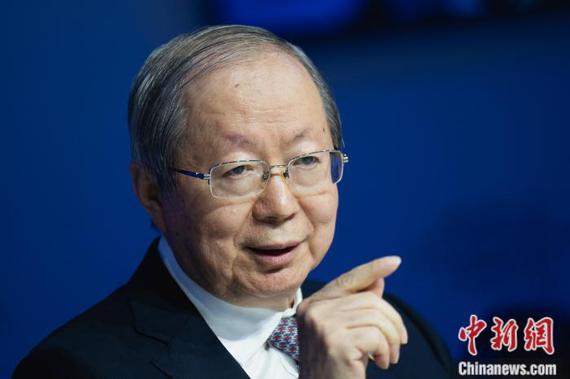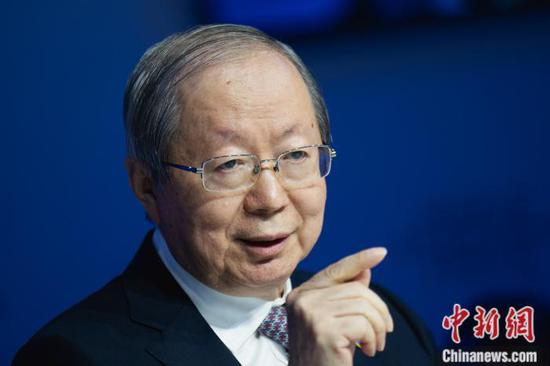Insights | Economist: 'Peak China,' 'overcapacity' narratives attempt to curb China's development
By Chen Caixia and Zuo Yukun
(ECNS) -- Recently, some countries have been hyping pessimism about the Chinese economy, crafting narratives such as "Peak China" and so-called "overcapacity" in new energy sectors.
Peng Sen, president of the China Society of Economic Reform, denounced these viewpoints during an exclusive interview with China News Network at the 2024 Summer Davos, which was held from 25 to 27 in Dalian, Liaoning Province.
According to Peng, those countries’ primary objective is to restrain China's growth and preserve its own leading position, and China must stay focused and persist in promoting high-quality development and market-oriented reforms.
In Peng's view, after rapid development since the reform and opening-up over four decades ago, China’s economy has transitioned to a new normal: with a potential economic growth rate of around 6 percent and an annual growth target of approximately 5 percent. This marks a new stage, yet it doesn't imply that China's reform and opening-up, and development have reached their peak.
He also pointed out that at this stage, China is confronting a more intricate and challenging international environment, featuring anti-globalization movements, “small yard and high fence” approach against China, and “decoupling and supply chains disruption”. Such trade protectionism and unilateralism are ultimately aimed at constraining China’s development.

On May 14, the U.S. announced to impose a 100 percent tariff on Chinese electric vehicle imports, a 50 percent tariff on Chinese solar cells and a 25 percent tariff on certain Chinese steel and aluminum imports.
Electric vehicles (EVs), lithium batteries, and solar panel cells, referred to as the “new three items”, which are the U.S.’ primary focuses, collectively exceeded 1 trillion yuan ($138 billion) in exports for the first time in 2023, significantly bolstering China's export growth.
Peng believes that certain actions by the U.S. and Western countries are hindering, rather than advancing globalization, constraining and undermining competitors rather than protecting and fostering competition, and jeopardizing domestic interests rather than safeguarding the interests of domestic producers and consumers. “Higher production costs ultimately increase consumer purchase costs,” said Peng.
In terms of global market demand for new energy and China's industrial development, Peng highlighted two contradictions in hyping the “China overcapacity theory”.
Firstly, there is a contradiction between the unfounded accusation of "overcapacity" and the actual insufficient demand.
Peng referenced a set of data: In 2023, global sales of new energy vehicles (NEVs) totaled 14.65 million units, with China exporting 1.2 million units, accounting for approximately 8 percent of global sales. Furthermore, global electric vehicle sales are projected to reach 17 million this year and 45 million by 2030, yet China manufactured only 9.5 million electric vehicles in 2023.
Peng emphasized that the global market demand for low-carbon green products is substantial, and China's current efforts fall short of meeting global demand. Therefore, accusing China of "overcapacity" is untenable.
Secondly, there is a contradiction between initiating an “anti-subsidy investigation” against China and the habitual use of industrial subsidies by the U.S. itself.
Peng noted that Chinese companies have gained competitive advantages and expanded their market presence through genuine expertise, high quality, and cost-effectiveness.
Thanks to its advanced institutional framework, well-developed supply chain system, ongoing technological innovation, and robust market competition, China's new energy industry has established a significant competitive edge.
Peng believes that targeting products aligned with low-carbon development trends has disrupted certain industrial chains and new models in China's green and low-carbon sectors. This approach not only fails to advance globalization but also runs counter to its progress.
Peng also emphasized the need for constant vigilance, unwavering determination, and a focus on excelling in China’s own endeavors to drive development and reform forward.
“Development signifies high-quality growth, which is the imperative of the new era while reform entails market-oriented changes, which is the fundamental driving force of China’s development,” concluded Peng.

